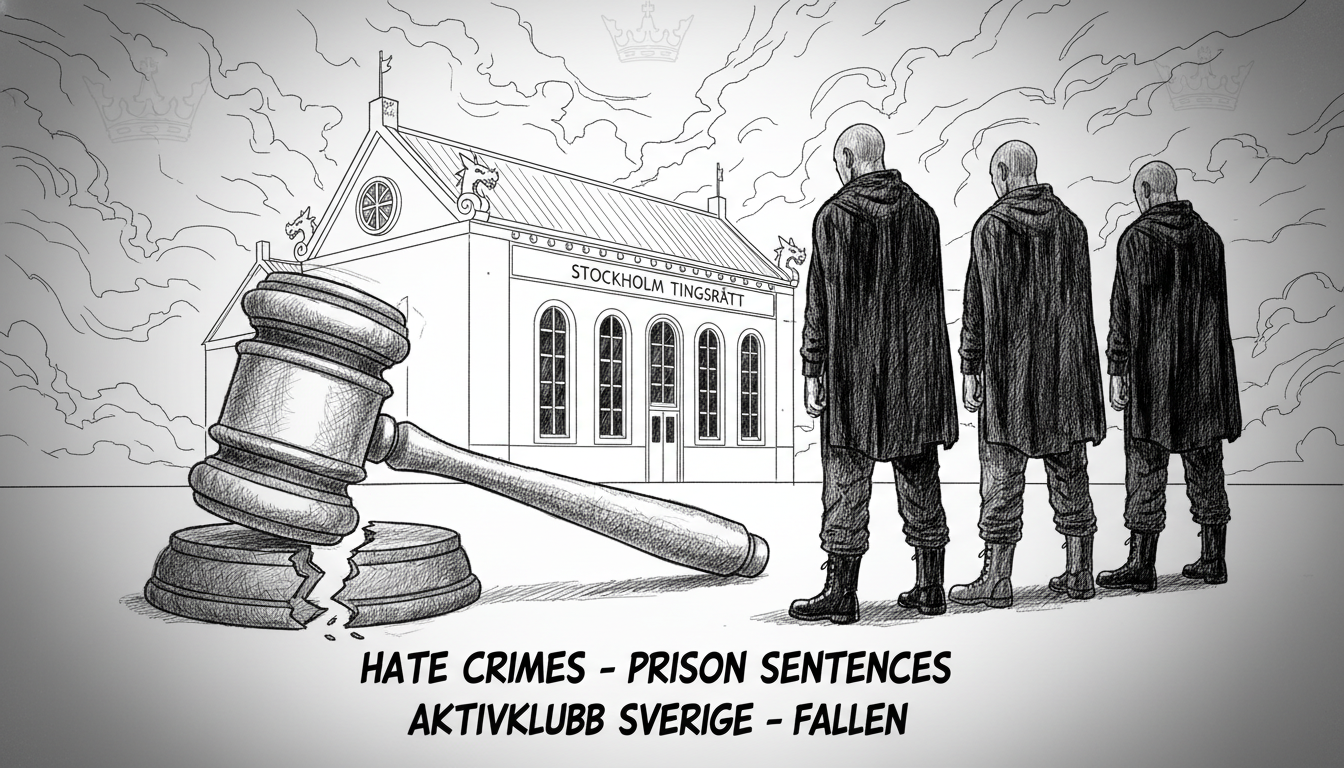Four members of the far-right group Aktivklubb Sverige received prison sentences for a violent attack targeting people with foreign backgrounds in Stockholm. The Stockholm District Court sentenced the men to prison terms ranging from three years to three years and six months for aggravated assault and hate crimes.
The attacks occurred during a single night in August when the four young men assaulted multiple individuals within a thirty-minute timeframe in Stockholm's Östermalm district. Surveillance footage from that evening showed at least two of the men performing Nazi salutes during their rampage.
Prosecutors had sought longer sentences of four and a half years for three of the defendants and a slightly shorter term for the fourth. The court noted that one defendant wasn't present during the third assault incident that night. All four men remain in custody pending the execution of their sentences.
This case highlights Sweden's ongoing struggle with organized far-right violence. The country has seen increased activity from extremist groups in recent years, particularly in urban areas. The court's explicit recognition of hate crime motivations sends a strong message about Sweden's legal approach to racially motivated violence.
Sweden's legal system treats hate crimes as particularly serious offenses, often resulting in enhanced sentences. The country has specific legislation addressing crimes motivated by racism, xenophobia, or similar intolerance. This legal framework reflects Sweden's broader commitment to combating organized extremism and protecting its diverse population.
The convictions come amid growing concern about far-right recruitment among young Swedes. Security experts note that groups like Aktivklubb Sverige often target disillusioned young men through social media and online platforms. Their ideology typically combines Swedish nationalism with anti-immigrant rhetoric and sometimes explicit neo-Nazi symbolism.
International observers will watch how Sweden handles similar cases moving forward. The country faces balancing acts between free speech protections and combating organized extremism. These sentences demonstrate the judiciary's willingness to impose substantial penalties for organized hate crimes.
What does this mean for Sweden's security landscape? The convictions may temporarily disrupt Aktivklubb Sverige's operations, but experts question whether prison sentences alone can address the root causes of radicalization. Community organizations continue working on prevention programs while law enforcement monitors other extremist groups.
The case also raises questions about prison radicalization and whether incarcerated extremists will form new networks behind bars. Sweden's prison system has struggled with gang recruitment in correctional facilities, creating concerns about similar patterns among political extremists.

